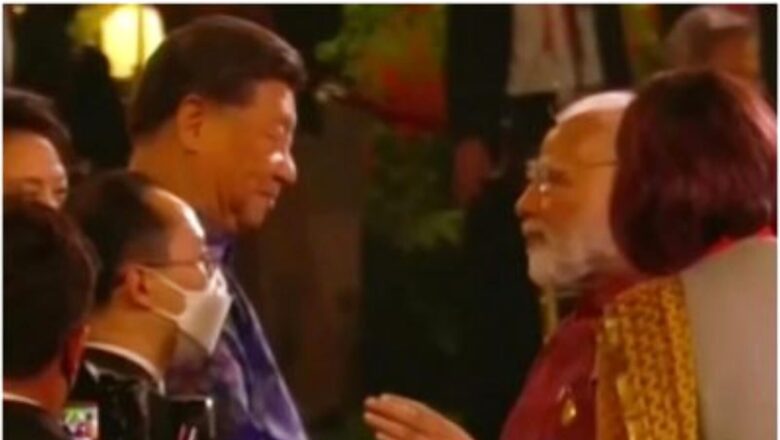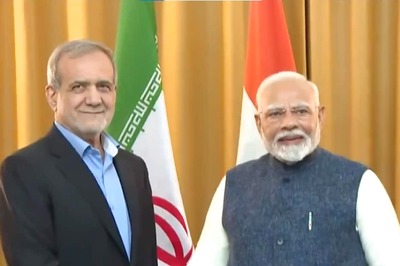
views
The 17th summit of the Group of 20, consisting of advanced industrial economies and emerging economies of the developing world, concluded in Indonesia amidst big power tensions, geopolitical turbulence in the global order, an on-going war in Europe, food and energy crisis, recession in the global economy and a global health pandemic, which still persists in certain parts of the world.
The G20 is about 23 years old and it was born after about two years of the Asian financial crisis in 1997 to address the crisis in the global political economy. The G20 meeting of top leaders was elevated to the summit level after the global recession of 2008 and since then the significance of this grouping of nations has increased by the years. The reason why the Group of 20 was formed can be found in the inability of the Group of Seven wealthiest nations in the world, six out of which belong to the West, to resolve the global economic crisis on their own. The role of the emerging economies, with faster rate of growth and huge developmental prospects, was considered central to address any economic issue that has global dimension.
The G20 is an informal grouping of nations that does not have a permanent address or a secretariat. It does not function like an international organisation. Yet its importance is beyond question; and its relevance in the present global order is indubitably valued by all. However, the G20 is not meant to resolve security issues. The irony is the 2022 G20 summit took place in Indonesia at a time when three security issues have severely impacted the global economy. One is the Russian invasion of Ukraine that has led to confrontation between the Western powers led by the United States and Russia that does not have active supporters.
A large number of countries do not support the economic war on Russia launched by the United States through sanctions, although they do not voice opposition to huge military support given by the West to Ukraine either. The economic fallout of this war is visible to all—the energy crisis in Europe, food crisis in Africa, inflation in large parts of the world, supply chain disruptions almost everywhere and many more.
The second war that has badly affected the global economy and precedes the Ukraine War is, of course, a war between humans and coronavirus. The Covid-19 pandemic is not over yet and its symbolic effect was reflected in Cambodian Prime Minister Hun Sen testing positive and leaving the G20 meeting. The main focus of the 17th G20 summit was economic “recovery” from the Covid-19 induced problems confronting trade, investment, employment, movement of people, education, agriculture, industry etc.
The third security development that has impacted the global economy is US-China cold confrontation making it difficult for many countries in the Indo-Pacific and elsewhere to choose sides. It all started with a tariff war launched by the Trump Administration and escalated to a very high level of tension when speaker of the US House of Representatives Nancy Pelosi visited Taiwan against the repeated Chinese caution against the visit.
In the G20 meeting, Indonesian President Joko Widodo appealed for unity and called for collective efforts to work towards global economic recovery and political stability. President Joe Biden and Chinese President Xi Jinping shook hands and agreed to prevent differences culminating in conflict. President Xi Jinping reached out to US allies, such as Japan and Australia apparently to mend fences. Prime Minister Narendra Modi and President Xi also shook hands and exchanged pleasantries. All these gestures will not overnight alter the current ills affecting the global political economy or strategic tensions. Yet they created positive vibrations.
The main contention among the leaders of the G20, however, was on the Ukraine War. There were considerable pressures on the Indonesian leadership to disinvite Russian President Vladimir Putin. While Jakarta refused to do so, Putin himself stayed out of the summit and deputed his foreign minister to Bali to represent him. Then there was a volley of condemnation of the Russian military action by many Western leaders attending the Bali summit. But many other member countries had different views and a consensus-based declaration seemed difficult.
This is where the stellar role of Indian Prime Minister comes in. His address at the summit highlighted the suffering of the poor people in the developing world resulting from food and fertilizer shortages, emphasized the need for lifting restrictions on energy trade to enable the international community to “recover” from the years-long economic downturn, underlined the significance of dialogue and diplomacy to resolve conflicts and establish peace, and cautioned all that this is not “an era for war” and, more significantly, showcased Indian achievements in promoting digital economy that can be a lesson for fostering cooperation to improve digital economy the world over.
Indian contribution to finalizing the draft declaration of the G-20 leaders deserves appreciation. India will be taking over the presidency of the G20 after about two weeks, but Prime Minister Modi has already assumed the role of a global statesman by meeting the heads of states and governments in Bali and apparently convincing them that his ideas of peace and prosperity can lead to a better world where conflicts can be resolved through diplomacy alone and prosperity can be preserved only through making it inclusive.
Leaders representing “hard power” — President Joe Biden and President Xi Jinping — expressed their support and hope at Bali to refrain from unleashing a cold war against each other. But Prime Minister Modi demonstrated the ability of “soft power” to promote peaceful dialogue and proposed the means to achieve “inclusive growth and prosperity” within the countries and among the countries.
It was India’s soft power that enabled India to play the leadership role in the Non-Aligned Movement encompassing more than a hundred countries and the Group of 77 of the Global South in the past. Now, it is India’s soft power again that has made India an influential player in the Group of 20 countries that represent 60 percent of world population, 75 percent of international trade and 80 percent of global GDP.
India’s presidency of the G20 will be critical in further strengthening India’s place in the global order as a country that can help end conflicts, navigate through the predicted recession in the global economy and make growth and development as inclusive as possible.
The writer is editor, ‘Indian Foreign Affairs Journal’, founder and Honorary Chairperson of Kalinga Institute of Indo-Pacific Studies, and formerly professor of JNU. The views expressed in this article are those of the author and do not represent the stand of this publication.
Read all the Latest Opinions here




















Comments
0 comment